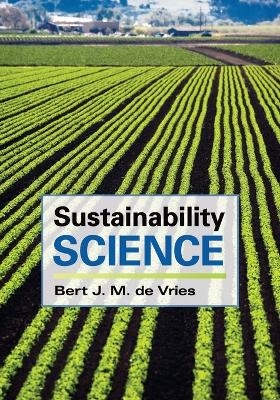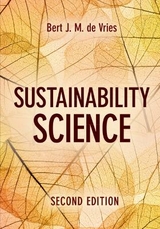
Sustainability Science
Cambridge University Press (Verlag)
978-0-521-18470-0 (ISBN)
- Titel erscheint in neuer Auflage
- Artikel merken
Sustainable development is becoming the guiding principle for the twenty-first century. This textbook - based on the author's course and rigorously class-tested by his students - provides an introduction into patterns of past and present (un)sustainable development and into the emergence of the notion of sustainable development. It systematically surveys the key concepts, models and findings of the various scientific disciplines with respect to the major sustainability issues: energy, nature, agro-food and resource systems, and economic growth. System analysis and modelling is introduced and used as an integrating tool. Stories and worldviews are used to connect the quantitative and the qualitative and to offer the reader an understanding of relevant trends and events in context. Sustainability Science is an ideal textbook for advanced undergraduate and graduate level courses in sustainable development and in environmental and resource science and policy.
Bert J. M. de Vries is co-founder and member of the Institute for Energy and Environment (IVEM) at the University of Groningen in The Netherlands, where he received his Ph.D. on sustainable resource use. Since 1990 he has been a senior scientist at the Netherlands Environmental Assessment Agency (PBL, formerly MNP and RIVM). He has been actively involved in modelling and scenario construction for the Intergovernmental Panel on Climate Change (IPCC). Since 2003 he has also been a Professor of Global Change and Energy at Utrecht University in The Netherlands. His research expertise and publications are in resource and energy analysis, modelling and policy; climate and global change modelling; and complex systems modelling for sustainable development. He has co-edited several books, including Perspectives on Global Change: The TARGETS Approach (1997, Cambridge University Press) and Mappae Mundi: Humans and their Habitats in a Long-Term Socio-Ecological Perspective (2002, Amsterdam University Press).
1. Introduction; 2. The systems dynamics perspective; 3. In search of sustainability: past civilizations; 4. The world in the past 300 years: the Great Acceleration; 5. Sustainability: concerns and definitions; 6. Quality of life: on values, knowledge and worldviews; 7. Energy fundamentals; 8. On knowledge and models; 9. Ecosystems; 10. Human populations and human behaviour; 11. Agro-food systems; 12. Renewable resources: water, fish and forest; 13. Non-renewable resources: the industrial economy; 14. Towards a sustainable economy; 15. Outlook on the futures.
| Erscheint lt. Verlag | 17.12.2012 |
|---|---|
| Zusatzinfo | 26 Tables, unspecified; 19 Plates, color; 10 Halftones, unspecified; 137 Line drawings, unspecified |
| Verlagsort | Cambridge |
| Sprache | englisch |
| Maße | 178 x 253 mm |
| Gewicht | 1240 g |
| Themenwelt | Naturwissenschaften ► Biologie ► Ökologie / Naturschutz |
| Technik ► Umwelttechnik / Biotechnologie | |
| ISBN-10 | 0-521-18470-3 / 0521184703 |
| ISBN-13 | 978-0-521-18470-0 / 9780521184700 |
| Zustand | Neuware |
| Informationen gemäß Produktsicherheitsverordnung (GPSR) | |
| Haben Sie eine Frage zum Produkt? |
aus dem Bereich



